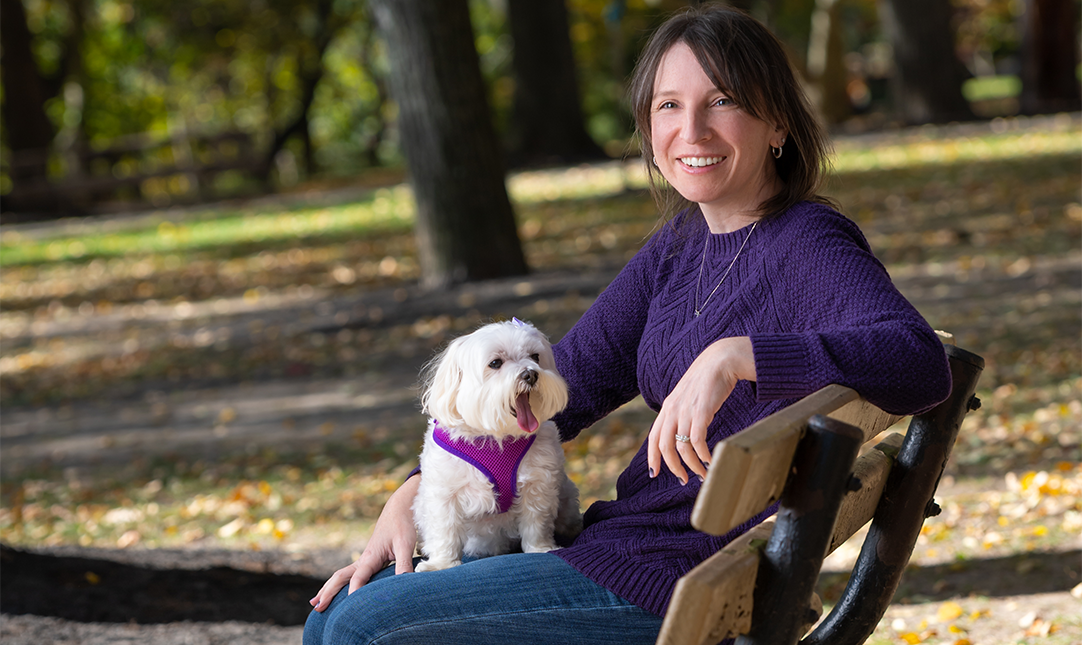A journey begins
Ms. Orlando’s cancer journey began early in 2021 with the discovery of a malignancy in her kidney. It was caused by a rare genetic disorder. Tatum Tarin, MD, removed the kidney — but a couple of months later, during follow-up treatment at UPMC Hillman Cancer Center, including immunotherapy infusions, Ms. Orlando developed a severe headache and nausea. Her oncologist, Leonard Appleman, MD, PhD, suggested she have an MRI of her brain. That revealed a tumor — unrelated to the kidney cancer.
“I had known for years that there was a small spot in my brain,” Ms. Orlando says. “It was discovered incidentally in 2011. At that time, nobody thought it was anything. It caused no symptoms. Well, the brain MRI in June of 2021 showed that it had grown about three times its 2011 size.
“And that’s what led me to my wonderful neurosurgeon, Dr. Pascal Zinn.”
Both a physician and a research scientist, Pascal O. Zinn, MD, PhD, joined UPMC Shadyside and Hillman Cancer Center in 2019 from MD Anderson Cancer Center. He is director of the adult neurosurgical oncology program at the University of Pittsburgh and, at Hillman, is the principal investigator of a molecular biology laboratory studying approaches in personalized tumor treatments and patient care. Also committed to teaching, Dr. Zinn was proud to be named best faculty teacher by the University of Pittsburgh’s neurological surgery residents in 2022.
To Nicole Orlando, he is simply “the top of the top — calming, reassuring, patient, and so kind. He spent a lot of time with my husband and me. His goal is to give every patient the very best and most personalized comprehensive treatment.”
